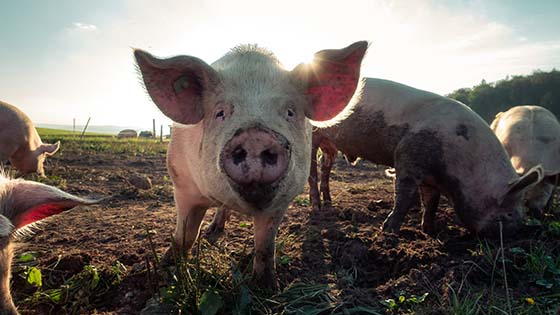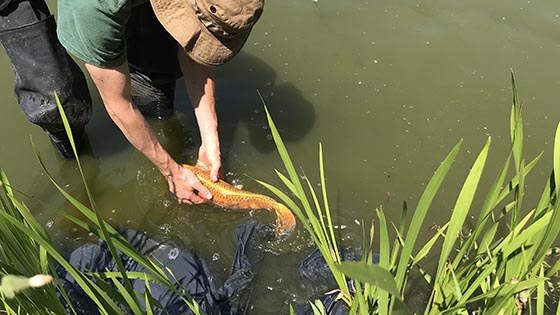September saw a different start to the 2020/2021 academic year at Winchester and universities across the UK: new students arrived for our Welcome Week, followed by returning students, to a socially-distanced campus and facilities, with a blended approach to teaching, learning and living for everyone. There was much to celebrate: here are some of the highlights.

Generation Z (young people born between 1995 and 2010) are most concerned about two issues: the quality of care in the NHS and the climate crisis.
The findings appear in a new University of Winchester report looking at what Gen Z want out of their university experience, published last month.
Writing in the report, Vice-Chancellor Professor Joy Carter, said: "We found a generation of young people desperately concerned about the future of the planet, and about our health service. We found they are worried that the government and others, including universities, were not doing enough about it. And we found that while students are still choosing to go to university for relatively traditional reasons, the values of an institution were a significant driver in student choice between universities."
The report is avialble to read online: The value of a degree report 2020.
The University's history and heritage experts took part in Winchester Heritage Open Days 2020 in September - albeit with a difference, because of the coronavirus pandemic.
Charlotte Tindle, studying for an MA in Cultural Heritage and Resource Management (CHaRM), headed up the small team of CHaRM students who coordinated the special programme virtual events hosted by the University. Her blog about their experience is available here.
University events included a virtual walking tour of medieval Winchester with Dr Cindy Wood; a look behind the walls of West Hill Cemetery with Dr Christina Welch and a short series of talks on Queenship with Dr Elena Woodacre and others. Most are still available on the festival website.

Findings from a major new study show that over 40 per cent of people with learning disabilities lost care and support over the past decade, due to cuts to social care funding.
Led by the universities of Bath and Kent, the research team included Rachel Harrison, Senior Lecturer in Health and Social Care, based in the University of Winchester's Department of Interprofessional Studies, who is a PhD student at the University of Kent. The University of Winchester also undertook part of the Patient and Public Involvement study which informed the subsequent research project.
Rachel Harrison said: "This research provides evidence which demonstrates that people with intellectual disabilities are impacted by austerity measures, resulting in cuts and changes to their care, their services and their benefits. A change in value-base towards one which actively respects and values the lives of people with intellectual disabilities and which creates opportunities for developing meaningful social networks is essential."
Find out more about the study.

Vice-Chancellor Professor Joy Carter, Deputy Vice-Chancellor Professor Elizabeth Stuart, Chancellor Alan Titchmarsh and Professor Andrew Knight, Director of the University's Centre for Animal Welfare are among almost 100 leading environmentalists and renowned academics from around the world who have signed an open letter calling on major financial institutions to stop funding factory farms.
The letter - coordinated by charity Compassion in World Farming with whom the University has a strategic partnership - highlights the huge costs of industrial farming for the environment, for human health and for animal welfare. It has been sent to banks including HSBC, Barclays and Santander, as well as organisations such as the World Bank, the International Monetary Fund and the European Bank for Reconstruction and Development. It calls for a halt to investments and funding for factory farms, and instead stresses the need for a move towards regenerative forms of agriculture to minimise the risk of future pandemics.
Other signatories include leading environmentalists such as Jane Goodall and Jonathon Porritt, renowned academics like Professor Tim Lang and famous faces such as actor Joanna Lumley.

The story of how five carp, who had outgrown the University's fish pond, were successfully resettled in a much larger pond at Basingstoke Crematorium, told by Pauline Brown, a student on the MSC Animal Welfare Science, Ethics and Law degree programme, whose campaign for their welfare was the catalyst for the move. Read the blog post.

In the latest article by a Winchester author for The Conversation, James Hardwicke, a PhD student in Sport, Health and Social Policy, explores the issues around head injuries in competitive road cycling with colleague Howard Hurst, a senior lecturer in Sport, Exercise and Nutrition Science at the University of Central Lancashire. Read the article.
Press Office | +44 (0)1962 827678 | press@winchester.ac.uk | www.twitter.com/_UoWNews
Back to media centre